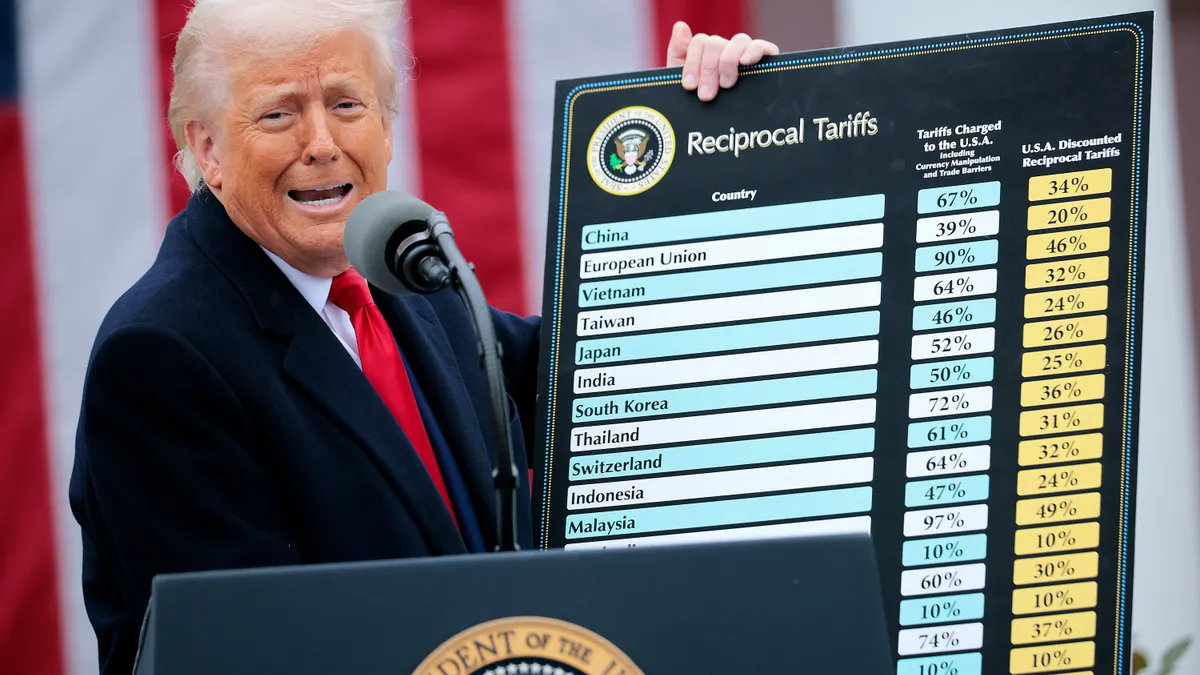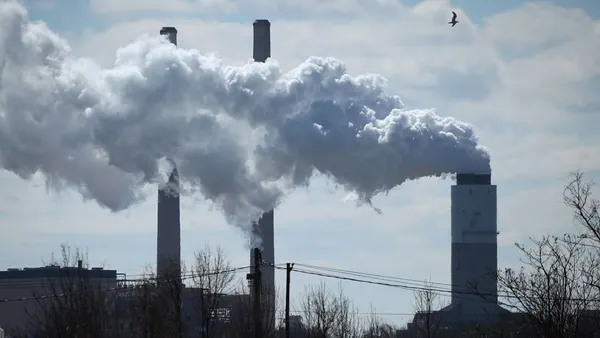Dive Brief:
- Eighty percent of 125 large U.S. and multinational companies adjusted their ESG strategies in 2025, according to a new report by the Conference Board that surveyed ESG executives. The changes come in response to United States policy shifts on climate, energy and ESG since President Donald Trump’s inauguration in January, per the report.
- Nearly three-quarters of ESG executives surveyed said they believed the shifts would “slow down” corporate decarbonization efforts in the U.S. Eighty-two percent said they thought the domestic energy transition would lose momentum, per the report.
- Changes in ESG strategy were most likely to include refining sustainability communication to focus on business impacts and expanding legal oversight of ESG, per the report. Demonstrating business value of sustainability investments and rebranding ESG also emerged as key changes.
Dive Insight:
U.S. policy has changed swiftly on climate, energy and ESG issues since Trump took office. The administration has prioritized fossil fuel production and infrastructure expansion while scaling back Environmental Protection Agency oversight and reducing federal support for renewable energy, among other shifts, the report noted.
The report surveyed 125 corporate sustainability and ESG executives at large U.S. and multinational companies; 80% of surveyed companies were U.S.-based and 46% reported annual revenues of more than $10 billion.
A broad majority of surveyed executives have already experienced backlash on their ESG efforts, with 65% of respondents reporting their firms had experienced “noticeable” backlash toward ESG efforts, primarily from advocacy groups and federal policymakers. The backlash is expected to persist or intensify over the next two years, 90% of respondents said, with climate goals and transition plans expected to be the most controversial topics.
Only 8% of respondents said their company had decided to double down on ESG commitments in response to policy shifts. By contrast, a March report by PricewaterhouseCoopers noted that 4,000 companies reported climate commitments in 2024, a nine-fold increase from 2019, with 37% increasing their ambitions. Eight-three percent of companies reported investing in the research and development of low-carbon products and services, and companies anticipate more than a third of their revenue will be derived from the climate transition by 2030, per the PwC report.
PwC based its report on international companies’ reporting to the environmental disclosure platform CDP, and most of the companies included in PwC’s report are based in Asia and Europe. While the Conference Board’s survey found that just 40% of executives expect the U.S. policy positions to slow decarbonization efforts globally, 98% of executives said they were concerned about how U.S. policy could affect their sustainability goals.
The most common concern was the widening regulatory and reporting gaps between federal, state and international ESG regulations, flagged by 49% of leaders, while 46% were concerned about increased scrutiny of DEI practices. Two-thirds of respondents said they are somewhat (44%) or very (22%) concerned that current or future U.S. trade measures could impede their company’s sustainability goals, while more than one-third of leaders (34%) identified tariffs on solar panel, inverters and storage systems as direct barriers to achieving targets.
To stay ahead of shifting tariffs and policies, the Conference Board report suggested that companies build tariff uncertainty into their ESG risk planning. The report also suggested monitoring global regulatory trends, with a “focus” on the European Union, United Kingdom, Canada “and other jurisdictions where early regulatory action may foreshadow broader global requirements.”










